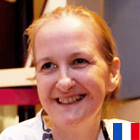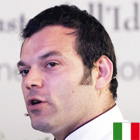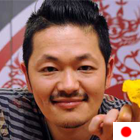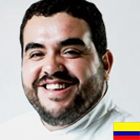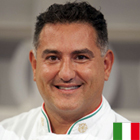Professional Courses
CHEF
The Professional Course for CHEF is aimed at those who aspire to become professionals in the catering sector and intend to build, from the fundamentals, adequate training.
The professional courses for Chef at WORLD CHEF ACADEMY are for a maximum of 7/9 participants.
In order to apply for a course you need to attend an interview with our admissions officers at our premises or via SKYPE for non-residents so assess as to the real motivation of candidates.
Students - according to their job aspirations, financial budgets and time availability - can choose the type of duration of the education path.
There are 4 different professional training paths to choose from:
1) PATH 1
2) PATH 2
3) PATH 3
4) PATH 4
Practical and theoretical classes are held in fully equipped facilities. The Laboratories are built with the most advanced technology. In each cooking laboratory, students have their own space and their own equipment, guaranteeing them to work with comfort and efficiency at the highest levels. Lessons are held by renowned Italian and international chefs, academics and experts in the field.
Students will be assessed on a weekly basis. They will be required to complete multiple choice tests.
The internship (optional and free of charge) is available both in Italy or abroad after the final assessment. Here students can put into practice and improve all those skills learnt during the cooking lessons as well as improve their knowledge in their particular area of interest.
* (Our training classes enjoy national and international recognition, with the possibility of paid internships abroad).
The Professional Chef’s Program
1) HACCP : principles and monitoring procedures of the entire food production chain for food safety.
Health and Safety in catering and hospitality
2) Food chemistry: bromatology
•Nutrients and anti-nutrients.
•Foods: categories, seasonality and nutritional values.
•Food storage.
3) The Catering Department
•Historic evolution of gastronomy.
•The kitchen Brigate System (the hierarchy, roles and responsibilities).
•Equipment requirements for professional kitchens and maintenance.
4) Menu Planning, Food Costs and Pricing
•Key criteria when designing a menu.
•The role of the Domestic Bursar: purchasing, stock control and financial management.
•Product and recipe Data Sheets.
•Menu for vegans and raw foodists.
5) Safe use of knife in the kitchen:
•How to choose and use a knife for chopping, trimming or carving.
•Vegetable & Fruit Carving.
6) The basics of traditional cuisine
•The staples of Italian cuisine.
•Gravies & stocks, mother sauces, emulsions, roux.
7) The regional cuisine
•History, description and realization of traditional dishes that have made the Italian cuisine one of the most popular in the world.
•Pasta: pasta cooking basics (home-made or made from durum wheat) and presentation on a plate.
•Risotto: history; characteristics and culinary uses of Italian rice.
8) Meat
•The classification of meat: White (poultry); Red (adult cattle); Black (game)
• Types of breeding, feeding, slaughtering and chilling.
• The boning and cutting of meat.
9) Fish & Seafood
•Cooking fish fundaments: scaling, gutting, skinnig and filleting and how to identify the freshest fish. Presentation skills.
•Blue fish (e.g. anchovies, sardines, fish spatula, mackerel).
•Raw fish and its risks (e.g. anisakis).
•Mollusks: squid, octopus, squid, mussels, clams.
•Shellfish: shrimps, prawns, lobsters and lobsters.
10) The bakery
•Flour (types, strength, proteins).
•The leavening agents.
•The dough (i.e. sourdough, biga, pre-fermented dough).
11) Kitchen in progress: innovation
•Description of the equipments of new generation and usage.
•Enhancement of traditional dishes with innovative cooking techniques.
•Pacojet, roner, cooking with vacuum bags, and Spherification.
12) The breakfast
•The breakfast in luxury hotels in the world.
•Lunch/Bruch
•The coffee break.
13) Eating disorders
•The causes of food intolerances.
•Symptoms: organic, epidermal and psychosomatic.
14) The Pastry Department
•Creation of menu for desserts in a restaurant.
•Basic pastry dough.
•Puddings.
15 ) The kitchen: different types of environment
•Catering , hotel, restaurant.
•Differences of the work cycle , organization and production.
16 ) International cuisine
•How the cuisine in the world has changed.
•Overview of food and recipes.
17 ) Tasting : the Sensorial Analysis
•How to recognize a scent, an aroma and how they relate to each other in the preparation of a dish.
Registration requirements :
•Recommended minimum age : 18 years old.
•Strong motivation and passion for food.
•Suitability for the job interviews
Book your enrolment to this course now



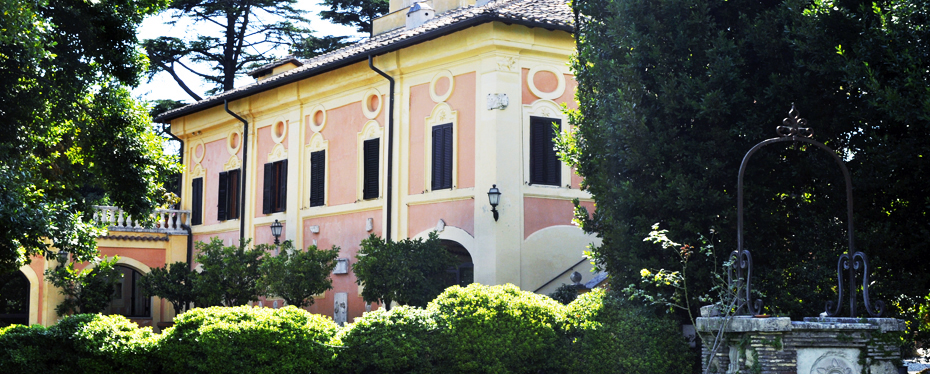








.jpg)
.jpg)
